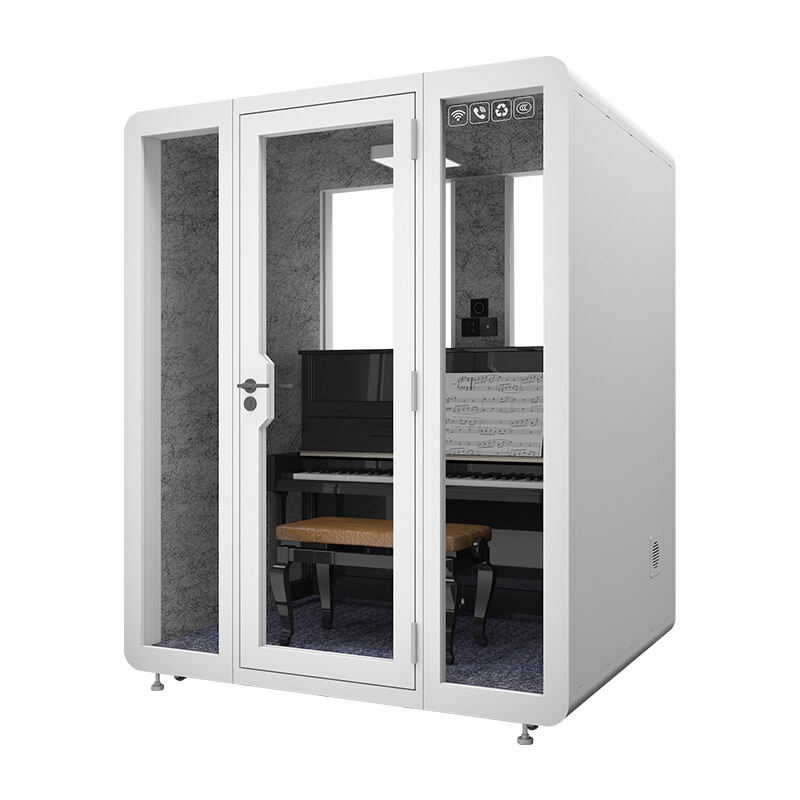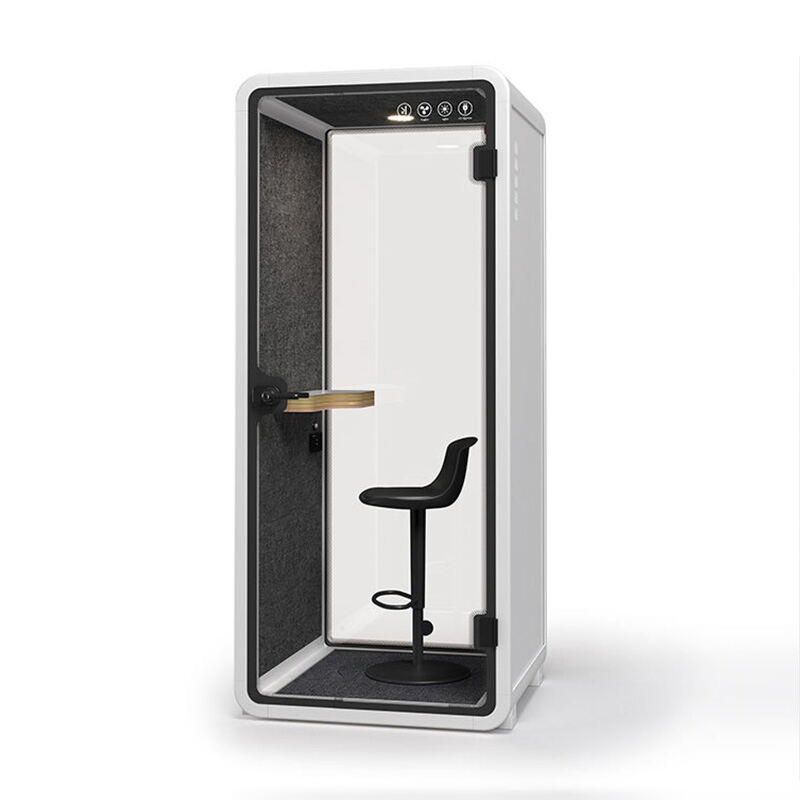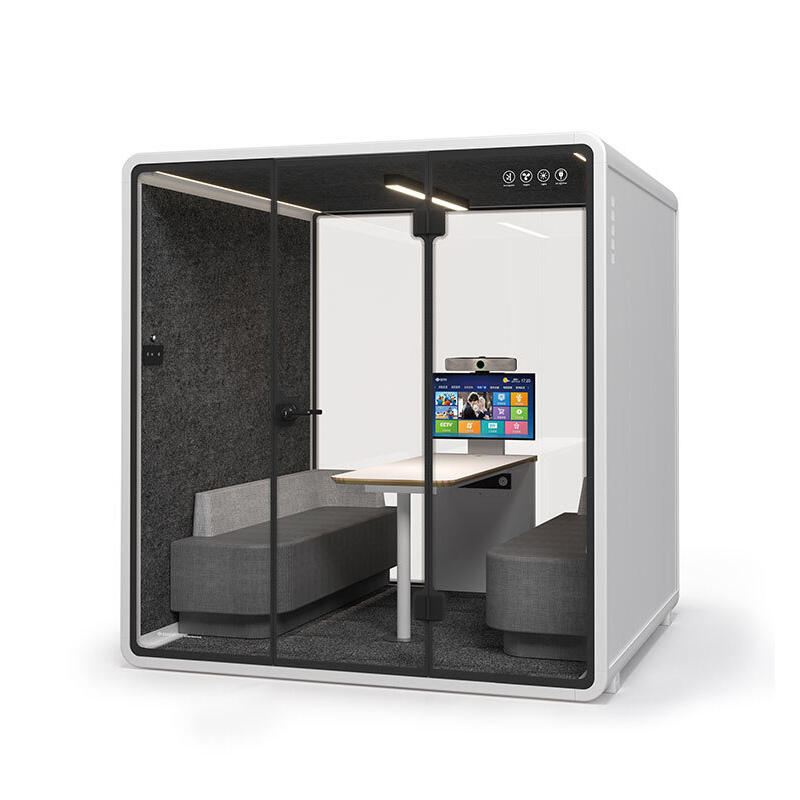Enhancing Productivity: The Role of Focus Rooms in Modern Workspaces
The Importance of Focus Rooms in Modern Workspaces
Focus rooms create dedicated areas where people can concentrate without getting distracted by everything going on around them at work. These include things like office pods or soundproof booths that let workers get some peace and quiet when they need it most. When staff members have somewhere to go where nobody打扰s them, they tend to be much happier overall. Companies notice this too because workers who aren't constantly interrupted generally produce better quality work and stay engaged longer with their tasks throughout the day.
The numbers speak pretty clearly about how focus rooms boost productivity. Research indicates most workers get sidetracked roughly every ten or so minutes when working in standard open plan offices. And getting back on track after these distractions takes around twenty five minutes each time. When companies offer soundproof spaces similar to those tiny phone booths we used to see everywhere, staff members actually get stuff done without constant interruptions. People report feeling happier at their jobs too, which makes them more engaged overall. Looking after individual worker needs isn't just good for morale either it creates teams that perform better and stay motivated longer term.
Designing Effective Focus Spaces
Creating good focus areas at work really comes down to getting some basic design stuff right. Ergonomic furniture matters a lot because people need to stay comfortable if they're going to sit there all day without hurting themselves. We've seen offices where workers start slouching after an hour simply because the chairs aren't supportive enough. The space itself needs enough breathing room too so folks can actually move around between desks and access whatever supplies they need during the day. And let's not forget about power outlets either nobody wants to deal with tangled cords or dying laptops mid-meeting. When everything works together properly, staff members tend to get more done without constantly complaining about discomfort or technical issues holding them back.
When creating spaces for focused work, acoustics and lighting matter a lot. Soundproof stuff like acoustic panels or those little office pods really cut down on background noise, making it easier to concentrate without distractions. Getting as much natural light as possible helps too. People tend to have less eye fatigue when working under sunlight, plus there's something about daylight that just feels better for staying focused. If natural light isn't an option, adjustable lights make sense. They let folks tweak brightness levels according to what works best for them personally throughout different parts of the day.
In conclusion, the thoughtful design of focus rooms can significantly benefit work environments by incorporating ergonomic features, soundproof solutions, and optimal lighting. These spaces, akin to a soundproof room or a phone booth for office use, facilitate productivity by minimizing distractions and creating a tranquil yet stimulating work atmosphere.
Types of Focus Rooms and Their Functions
There are different kinds of focus rooms out there, designed for all sorts of work needs and preferences. Take quiet rooms for example these are basically private spots where someone can get stuff done without distractions. They really help boost productivity at work, according to some studies we've seen on how people perform better cognitively when they have space to themselves. One particular workplace survey found workers in quiet areas actually focused better and got through their tasks faster than those in open offices. Makes sense really when you think about it.
Enclosed focus pods actually provide something extra when it comes to privacy and keeping things confidential. More and more offices are installing these pods these days. They work great as makeshift phone booths too. Employees need somewhere to talk on the phone without everyone hearing their business. People just want space sometimes. The fact that so many companies are going this route shows there's definitely a shift happening towards workspaces that can change depending on what people need. Some workers need quiet time to concentrate while others require privacy for sensitive discussions. These pods handle both situations pretty well.
Incorporating Technology in Focus Spaces
Getting the right tech set up in those focus areas really makes a difference when it comes to getting stuff done. Focus rooms need some basic tech gear if they're going to work properly. Think noise cancelling gadgets, fast internet access, and those big smart boards everyone loves these days. The tech helps people stay on task because it cuts down on outside noise and keeps meetings running smoothly. Fast internet isn't just nice to have anymore it's basically required when half the team works from home. And let's face it, nobody wants to stare at a boring whiteboard anymore. Smart boards make presentations way more engaging and actually fun to watch. They turn regular offices into places where ideas can flow freely between teams no matter where everyone sits.
Beyond standard tech gear, smart features including automated lighting and built-in comms tech really boost concentration and teamwork in workspaces today. Smart lights change brightness depending on what people are doing or what time it is, creating an atmosphere that actually works better for brains at task. When it comes to staying connected, offices now have things like webcams and shared apps inside those private work nooks and soundproofed phone rooms. This means coworkers can chat and share ideas even if they're sitting across town from each other. Workplace designers increasingly see tech integration as essential for both helping individuals stay focused and making sure teams can still work together smoothly despite all the remote working trends we've seen lately.
Maximizing the Efficiency of Focus Rooms
When trying to get the most out of focus rooms, flexible space solutions like the Lite L Privacy Pod really matter. The design is pretty compact but manages to make good use of whatever space it occupies. What stands out is how well it handles sound issues thanks to its acoustic properties. People who need concentration without distractions find these pods work wonders because they block outside noise yet still feel comfortable inside. Some businesses even customize their Lite L models into things like mini recording studios or quiet study areas depending on what kind of work gets done there day to day.

The 1 Person Booth Home Office Pod really shines when it comes to working from home situations. What makes this thing special? Well, the sound insulation is pretty amazing actually. Most people can't even hear what's going on outside once they're inside. Great for anyone who needs to concentrate without all the usual distractions at home. Inside, there are some nice touches too. The ventilation works surprisingly well, keeping things fresh without being noisy. And the seating arrangement? Definitely thought through for comfort during long work sessions. For folks stuck trying to create a decent workspace in their living room or bedroom, this pod might just be the solution they've been looking for.

When it comes to working together as a team, the 6 Person Pod with its soundproof phone booth setup really hits the mark. These spaces give enough room for people to spread out and work on group projects without feeling cramped, but still maintain that close-knit atmosphere needed for good teamwork. Plus, individuals can slip into their own private booth when they need to concentrate without distractions. Many tech companies and creative agencies have started using similar setups in their offices. The ventilation system runs quietly and efficiently, keeping the air fresh throughout the day. And those central lights aren't just bright enough to see clearly, they actually help set the mood depending on what kind of work is happening inside. For businesses looking to boost both group brainstorming sessions and solo deep work periods, investing in these pods makes practical sense from both an operational and employee satisfaction standpoint.

Overall, integrating these types of office pods can transform focus rooms into highly efficient and productive environments, catering to diverse working styles and organizational needs.
Future Trends in Focus Room Design
The way people work keeps changing, and focus rooms are getting smarter about how they fit into this new world of hybrid setups. Many companies are redesigning these spaces with flexibility in mind so different types of workers can find what suits them best. Research shows that office layouts need to change as well because the people using them do too. Take the move toward working from home sometimes but coming into the office other times. Good focus rooms should handle both situations without making anyone feel left out. When everyone has access to creative spaces whether sitting at their desk or joining virtually, teams tend to get more done and come up with better ideas overall.
Green practices are now taking center stage when it comes to designing focus rooms, as businesses increasingly look at eco materials and tech that saves energy. When companies build these work areas with sustainability in mind, they're not just ticking boxes for CSR programs but actually responding to what employees want these days. People care about working in places that don't harm the planet after all. For organizations trying to cut down on emissions, making smart choices about how focus spaces are built makes sense from both business angles and moral standpoints. Some firms have even reported cost savings over time when they go green with their office designs.




